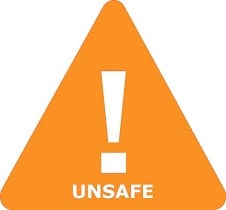Is Kombucha Safe in Breastfeeding
Question
I am a breastfeeding mother and i want to know if it is safe to use Kombucha? Is Kombucha safe for nursing mother and child? Does Kombucha extracts into breast milk? Does Kombucha has any long term or short term side effects on infants? Can Kombucha influence milk supply or can Kombucha decrease milk supply in lactating mothers?
Kombucha lactation summary

- DrLact safety Score for Kombucha is 5 out of 8 which is considered Unsafe as per our analyses.
- A safety Score of 5 indicates that usage of Kombucha may cause serious side effects in breastfed baby.
- Our study of different scientific research indicates that Kombucha may cause moderate to high side effects or may affect milk supply in lactating mother.
- Our suggestion is to use safer alternate options rather than using Kombucha .
- It is recommended to evaluate the advantage of not breastfeeding while using Kombucha Vs not using Kombucha And continue breastfeeding.
- While using Kombucha Its must to monitor child for possible reactions. It is also important to understand that side effects vary largely based on age of breastfed child and time of medication in addition to dosage.
- Score calculated using the DrLact safety Version 1.2 model, this score ranges from 0 to 8 and measures overall safety of drug in lactation. Scores are primarily calculated using publicly available case studies, research papers, other scientific journals and publically available data.
Answer by Dr. Ru: About Kombucha usage in lactation
A drink produced from tea and sugar or fermented honey with a mixed culture of certain bacteria and yeast. None of the therapeutic properties which are attributed to it have been scientifically proven (Ernst 2003, Majchrowicz 1995, Hauser 1990).There is little published literature and even less relating to its effects on humans.Hepatic damage, metabolic acidosis, cutaneous infection from anthrax and even death have occurred in relation to its consumption (Gemela 2016, SungHee 2009, Derk 2004, Srinivasan 1997, CDC 1995, Crit Path AIDS 1994). Since the last update we have found no published data on its excretion in breast milk. The lack of literature and its potential toxicity added to the lack of precise therapeutic indications makes it a totally non-essential product, especially during the period of breastfeeding.
Alternate Drugs for Diets, foods, nutrients and food supplements. ATC V06
Cannabis(Low Risk)
Lecithin(Safe)
Garlic(Safe)
Resveratrol(Safe)
Hypo-Caloric Diet(Safe)
Adenosine-Monophosphate(Safe)
Adenosine-Triphosphate(Safe)
Artichoke(Safe)
Kelp-Seaweed(Unsafe)
Amaranth(Safe)
Maple(Safe)
Preoperative Fasting(Safe)
Coffee(Low Risk)
Shark Cartilage(Safe)
Onion(Safe)
Chitosan(Safe)
Flavonoid(Safe)
Vegetarian Diets(Low Risk)
Wheat Germ(Safe)
Glycophosphopeptical(Safe)
Goji Berries(Low Risk)
Royal Jelly(Safe)
Kefir(Safe)
Brewer´s Yeast(Safe)
Strawberry Tree(Low Risk)
Mate(Safe)
Propolis(Low Risk)
Quinoa(Safe)
Rampion Bellflower(Safe)
Silanol(Low Risk)
Tea(Low Risk)
Theobromine(Safe)
Grapevine(Safe)
Airborne(Unsafe)
Probiotics(Safe)
Chia(Safe)
Hemp(Low Risk)
Jujube(Safe)
Brazil Nut(Low Risk)
Cannabis sativa(Low Risk)
Hashish(Low Risk)
Marihuana(Low Risk)
Marijuana(Low Risk)
Poliglusam(Safe)
Bee glue(Low Risk)
Jamaica Sorrel(Safe)
